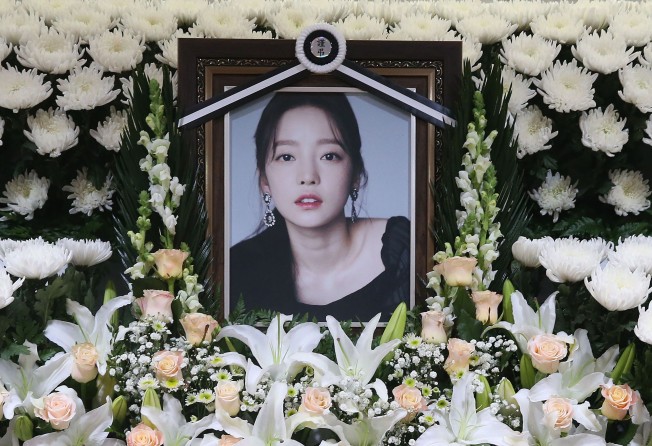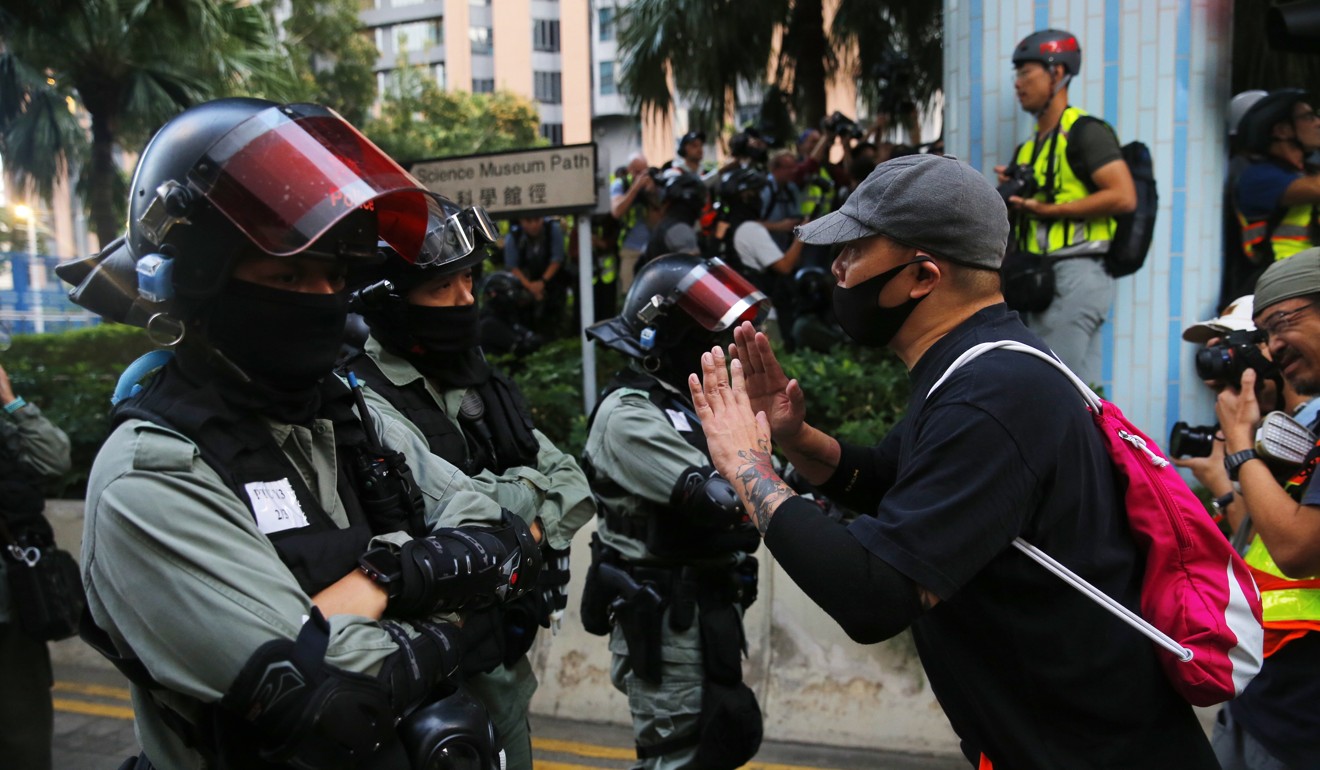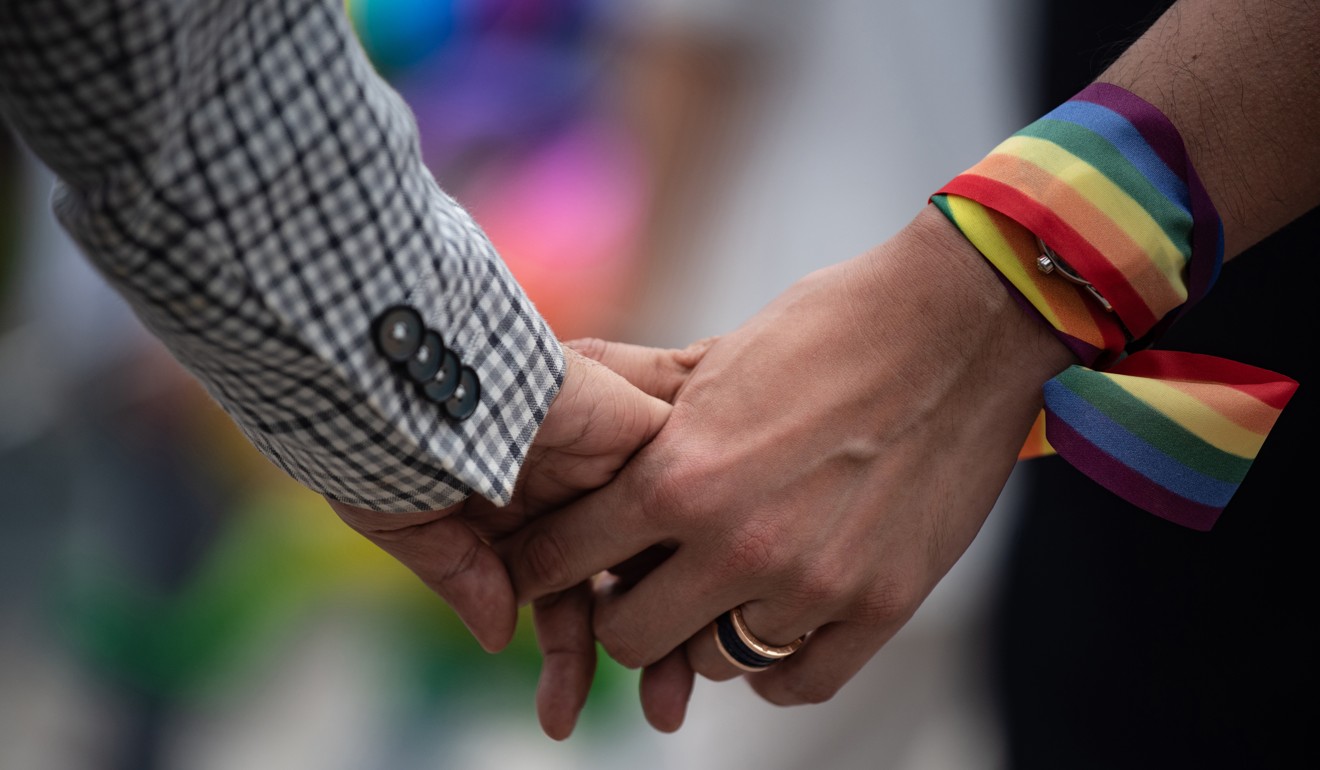K-pop deaths show East Asia must end the stigma, and the solitude, that surrounds mental health
- The deaths of Goo Hara and Sulli reveal signs of a deep mental health crisis in East Asia that isn’t talked about enough. To combat it requires more community outreach and specialised resources for reaching specific groups

A pang shot through me when headlines blared that Goo Hara had died from suspected suicide – just a month after her best friend Sulli’s death.
“That’s the thing about pain,” goes a popular line in John Green’s The Fault in Our Stars. “It demands to be felt.”
Recent medical and social science literature have added to this picture, showing that pain also demands to be spread. Mental health is contagious in patterned ways. And these patterns tell a compelling story of a mental health epidemic on the rise in East Asia.
Mental health troubles, such as distress, depression and anxiety, can spread subconsciously through social interactions like a virus. This can be short term. People reflect observations of others’ moods and negative emotional states onto themselves. We see this most clearly in emergencies, when someone’s panic or anxiety triggers a chain reaction in others.
It can also be long term. When receiving and processing others’ negative interpretations of events, individuals can come to adopt them as well. For example, I never thought much about grading a particular assignment for a course I co-taught, until I heard a colleague drone on about how it was a chore.
The following year, when I taught the same course, that thought crept up on me as I began to grade. Without me realising it, a wisp of doubt had flickered into existence – I had retained my colleague’s sentiment and my motivation to grade wavered, even if for a moment and by a little.
Certain illnesses spread this way as well, such as depression and anxiety. Most concerning is how they spread faster among East Asians than other ethnicities and among more men than women, according to research, because these groups commonly do not discuss their emotions, even when distressed.
Traditional norms about what it means to be mature, and a man, hold fast in East Asian culture. Apathy is validated as a sign of strength. Showing feelings is maligned as being unproductive and weak. Emotion, a fundamental part of the human condition, is banished from our being.
Goo and Sulli’s deaths, tragic as they are, are but two blips in a growing cluster of mental health illnesses in East Asia. This is not about the K-pop idol profession. This is a public health issue of grave significance. A crisis has crept over the horizon and stands before us.
A study published in 2018 in BMC Psychiatry, a leading psychiatry journal, analysed data from a nationally representative survey in South Korea to tell a grim story about mental health. Only 16 per cent of those with symptoms of depression, including suicidal tendencies, actually seek a mental health consultation. Hong Kong fares no better, as services remain underfunded amid skyrocketing rates of mental health problems.

We must recognise and treat mental health as a public health crisis. Two concrete strategies should guide these efforts.
First, develop community outreach and organising strategies at the grass-roots level. Hong Kong, in particular, already has an available fund to draw from – the Social Innovation and Entrepreneurship Development Fund.
This supports social innovation programmes, research and capacity-building initiatives. Resources from within this pool could thus be devoted to creating similar initiatives for improving education around mental health, including workshops teaching resilience and workplace-affiliated education programmes.
Second, introduce more specialised mental health resources for specific groups and identities. This is important because even general psychologists are not equipped to deal with the nuances of identity-specific concerns, such as LGBTQ individuals struggling with acceptance and discrimination.
At the Health and Wellness Centre at my university, for instance, we work to accommodate a large proportion of racial and ethnic minority patients by assigning them to professionals who are also minorities. This has produced markedly improved outcomes and lowered recidivism.

The point of these strategies is to break the isolation that mental illnesses inflict on individuals in a targeted fashion, and to introduce a sense of solidarity that is fundamental to social well-being and human existence itself.
The old thought experiment comes to mind: if a lone tree falls in a forest, does it make a sound? The individual deaths of Goo, Sulli and every less-famous individual who retreats from life itself all combine to show a forest of trees already fallen without being heard. It warns of all those poised to fall in the future if we continue with the status quo.
The crisis at hand calls for an end to the stigma, but also institutional strategies to end the solitude and segregation. We need to listen.
Anson Au is a visiting professor in the School of Humanities, Social Science and Law at Harbin Institute of Technology and a PhD student in sociology at the University of Toronto